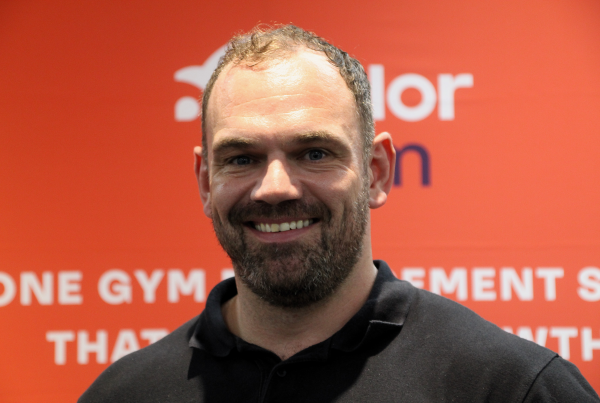By: Rob Johnson
It has been clear for some time now that the leisure industry does not have enough confidence in its workforce to deliver key job roles for an evolving sector. On this basis, Future Fit Training, in partnership with ukactive, released an exclusive report this month, at ukactive’s National Summit 2015, exploring employer attitudes and perceptions towards the workforce, skills, and training and assessment standards. The report, ‘Raising the Bar’, is the result of an annual survey and interview process with sector employers. The survey process began in 2014 and entailed not only a detailed survey but also personal consultations with HR representatives, senior managers and CEOs.
Key Findings
- Not one respondent was satisfied that the current content of the Level 3 Personal Training Qualification meets the needs of the fitness industry.
- Not one respondent believes that the current assessment methods are robust enough or include sufficient practical assessment to ensure PTs are fit for industry.
- 100% of respondents answered either ‘yes’ or ‘sometimes’ as to whether they have to provide additional training to fitness staff, in addition to core qualifications, to ensure their staff are “work ready”.
- 89% are not satisfied with the period of time over which commercial training providers train the core fitness staff
- 78% do not believe that sector employers offer sufficient career opportunities and remuneration in order to attract high quality staff
The report reinforced our understanding that there is a number of existing skills gaps throughout the workforce, and it highlighted exactly where these gaps are most strongly felt. Employers cited social skills, behaviour change, motivational skills and business acumen as some of the most significant skills gaps among exercise professionals.
Employer Feedback
- “If we want leisure and health to continue to move onwards and upwards, then the level of training must follow suit”
- “As a General Manager, you have no idea how well a candidate has been assessed and therefore no idea of the level of skill they are operating at”.
- “Having a more standardised approach towards training assessment is a logical step forward for the sector”.
Most respondents are in agreement that they want to see more time and resources dedicated to the improvement of current workforce development standards, with many keen on the concept of minimum assessment benchmarks across the sector.
In terms of tackling these issues, the majority of respondents agreed that all Personal Trainers should undertake a prolonged assessment of a real-life (not simulated) candidate as part of their qualification. Minimum assessment boundaries would remove the inconsistency and lack of confidence currently surrounding employers’ attitudes towards the workforce. However, in order to achieve this, employers must work with ukactive, CIMSPA, Future Fit and all of the other organisations who are driving this agenda forward in order to have their voice heard and develop standards fit to meet the needs of the future workforce.
Recent changes to OFQUAL (the regulatory body for qualifications, exams and tests in England and vocational qualifications in Northern Ireland) introduced the Regulated Qualifications Framework (RQF) to replace the Qualifications and Credit Framework (QCF) rules as of 30th September 2015. As a result of this change, the Common Unit Qualifications housed by SkillsActive are no longer relevant, with the responsibility for designing units now handed over to awarding organizations. This opens the threat of significant variation within the quality of training across the industry.
Going forward, minimum assessment boundaries along with trusted and consistent standards will be essential in order for the activity and leisure sector to progress, meet the needs of future customers, and are ultimately expected in order for the sector to be seen as a viable partner to the health sector. As physical activity becomes more important in the fight against the increasing prevalence of long-term medical conditions, it is crucial that the workforce is united and ready to operate as a respected partner to the health sector.
Taking note of minimum assessment standards for other sectors can assist in the implementation for such measures concerning physical activity as well. The practice of cognitive behavioural therapy is regulated by the British Association for Behavioural and Cognitive Psychotherapies (BABCP) with its explicit minimum training standards, experience and practice required for therapists to achieve an agreed standard of competency. The BABCP’s strict requirements prove that minimum standards are implementable and effective in creating a more qualified workforce.
Future Fit is passionate about ensuring the quality of training, continued development and ongoing provision of expert Personal Trainers that not only complies with, but exceeds the health and fitness industry’s agreed National Occupational Standards. Our training and assessment exceeds the health and fitness industry’s agreed National Occupational Standards and we provide training and assessment on the skills gaps identified in this survey as standard!”.
The Raising the Bar report was launched at ukactive’s National Summit 2015, which saw workforce development take a starring role as a key priority for the sector. Future Fit Training held two breakout sessions at the event; ‘Apprenticeships and Trailblazers: What you need to know’ and ‘”Raising the Bar” of training and implementing CIMSPA’s reforms”
The overriding call from the day was crucially that employers and all stakeholders must work together in order to improve workforce standards across the sector. The emphasis on skills and workforce development on this year’s National Summit agenda highlights ukactive’s commitment to this area of work in the coming months and years, and its importance for members and stakeholders across the sector.

More People More Active More Often




